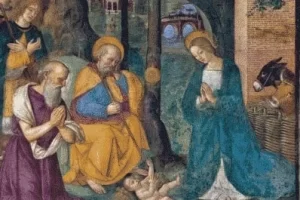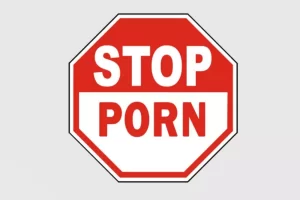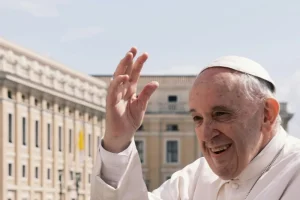Is it possible to find any good in the pandemic?
God is far too great for us to be able to judge his actions, but we can get some insights from what we know of Him.
The pandemic brings to light our “false securities”.
Without considering it a punishment, “it is hard to imagine that this global disaster is unrelated to our way of approaching reality, our claim to be absolute masters of our own lives and of all that exists “, as Pope Francis wrote in his encyclical Fratelli tutti.
Christians believe that God is our Father and, like any good father, he is the first one interested in the upbringing of his children. This includes the need to correct out of love.
Is Covid-19 something God intended to correct us?
God is infinitely wise and good, and in his Providence and care for all that exists, he directs everything in the most convenient way. Some events or circumstances come from his goodness, but others he only allows. For example, sometimes God allows evil to be done, so that through that action something great and wonderful may be accomplished, as in the case of our salvation through the death of Jesus on the cross.
He allows sickness, shortcomings and stumbling blocks, so that we may become humbler and, paradoxically, healthier. This path requires us to move from the attitude of the Pharisee in the parable, proud of his own “goodness”, to that of the tax collector in the same parable, which is narrated by a doctor: St Luke (cf. Lk 18:9-14).
Both characters go to pray in the temple. The Pharisee prays without realising the need to repent. He is confident that he does enough and more than others, whom he despises; he fulfils his obligations and he takes credit in his ability to fast…. The tax collector repentant, falls on his knees, humbly acknowledging his limitations, asks for forgiveness and help without comparing himself to others. That is why he alone ends his prayer happier and returns home renewed.
A humble attitude is the source of happiness and prayer pleasing to God.
We can therefore ask ourselves: is Covid-19 a call for me to be humble, a punishment, a test, or simply something natural like any other illness? Could the fact that only some people get infected, suffer or even lose their lives mean that God considers them more guilty or in need of conversion? Of course not, as Jesus Christ answered, commenting on the episode of 18 people who were crushed to death under the tower of Siloam (cf. Lk 13:4-5): they were no different from their fellow citizens.
Could the pandemic be a universal punishment for the human race?
As a result of original sin, we lost the gifts that God had wanted to give us, and suffering and death entered the world. Indirectly, from that first guilt comes pain, disease and death (link to another article).
Could it be a sort of “updating/re-enacting of the original punishment”, for the evil that is spread today? In many countries, laws are being passed that deny the value of the human person, a culture far removed from human values is being promoted, and euthanasia is being used to suppress pain. Is God tired of being rejected by women and men, as in Noah’s time, when he sent the universal flood? He said then that he would not punish mankind like that again. However, he did so – on a smaller scale – when the people of Israel, many centuries after Noah, were deported to Babylon.
We cannot attribute the spread of this virus to God as punishment for rejecting him, or for despising other people, i.e. for our sins. It would be more appropriate to say that the devil caused it, since he enjoys seeing us suffer. This would not be realistic or helpful either. What we can do is to draw good out of this. It is an opportunity to look out for each other, while recognising the impact that human freedom and our errors have in the course of history.
With this attitude we resemble God, who always brings good out of evil. He wants everyone to be happy and to reach heaven: illnesses awaken in us a longing for that future homeland. He did not create us to punish us, but to make us sharers in his goodness. That is why he wants us to be converted, to improve ourselves, and his justice provides for the punishment of evil.
The enemies of God are also trying to take advantage of the virus.
Many are generating despair, spreading lies, causing many people to close in on themselves and isolate themselves. In a large number of countries people have had no access for months to Mass and the sacraments – the ordinary means by which God’s grace or specific help comes to us to assist us in our mission.
For this reason, too, the Catholic Church has promoted other ways of gaining that strength, for those suffering from Covid-19 disease, for health care workers, family members and caregivers. It has arranged for special plenary indulgences to be obtained, as explained in this document. This means that with humble prayer we can avail of extra help from heaven to erase our debts.
Whoever rejects God will suffer uselessly. It is up to us to accept or rebel against the present cross. We can either suffer resentfully or give it a healing and eternal value.
We are not entirely clear about the meaning of Covid-19, but it is a chance to reavaluate our life and take it as a starting point, a reset button.
Only coming to grasp God’s love for us will bring about this new conversion. “The pain, uncertainty and fear, and the realization of our own limitations, brought on by the pandemic have only made it all the more urgent that we rethink our life style, our relationships, the organization of our societies and, above all, the meaning of our existence” (Fratelli tutti).







0 Comments